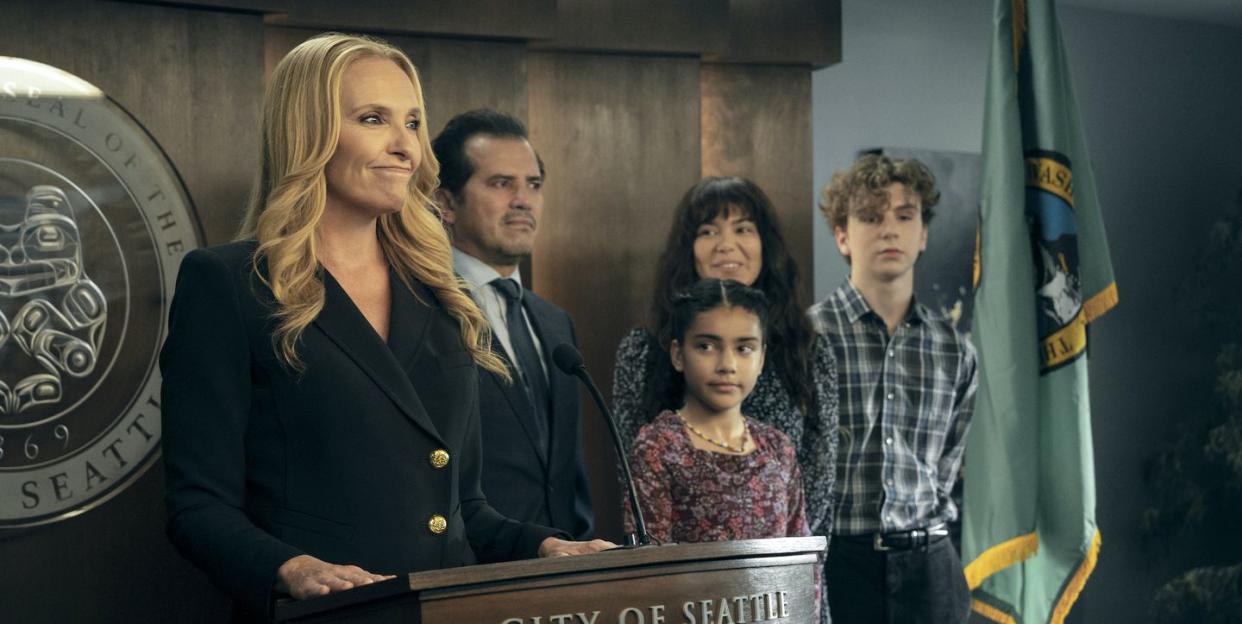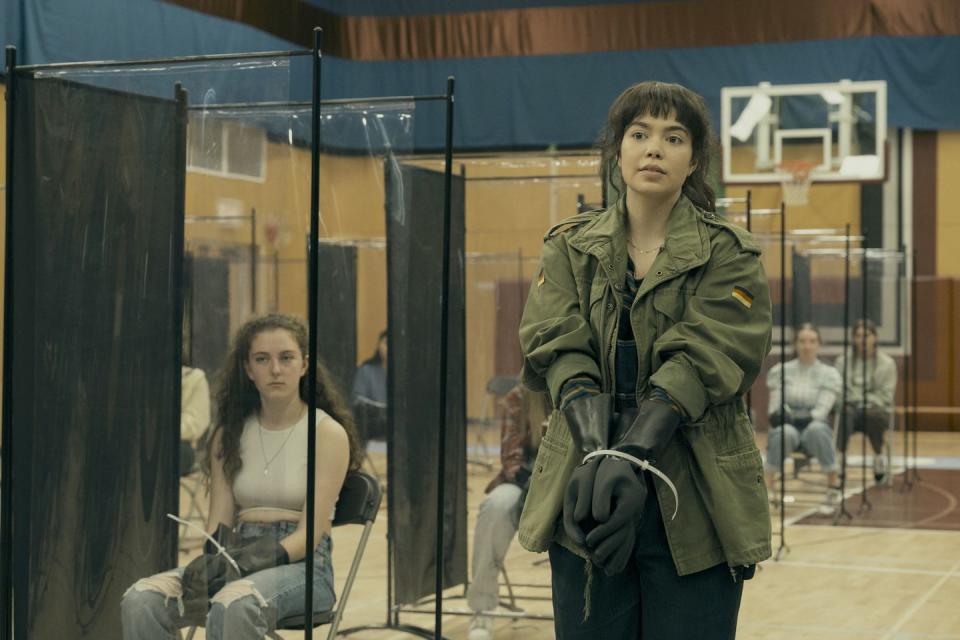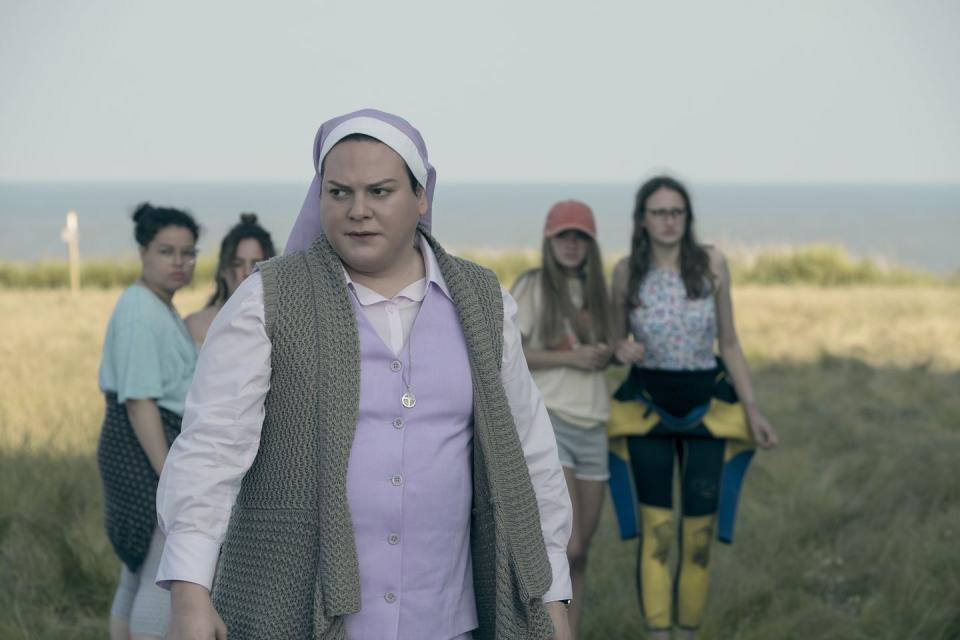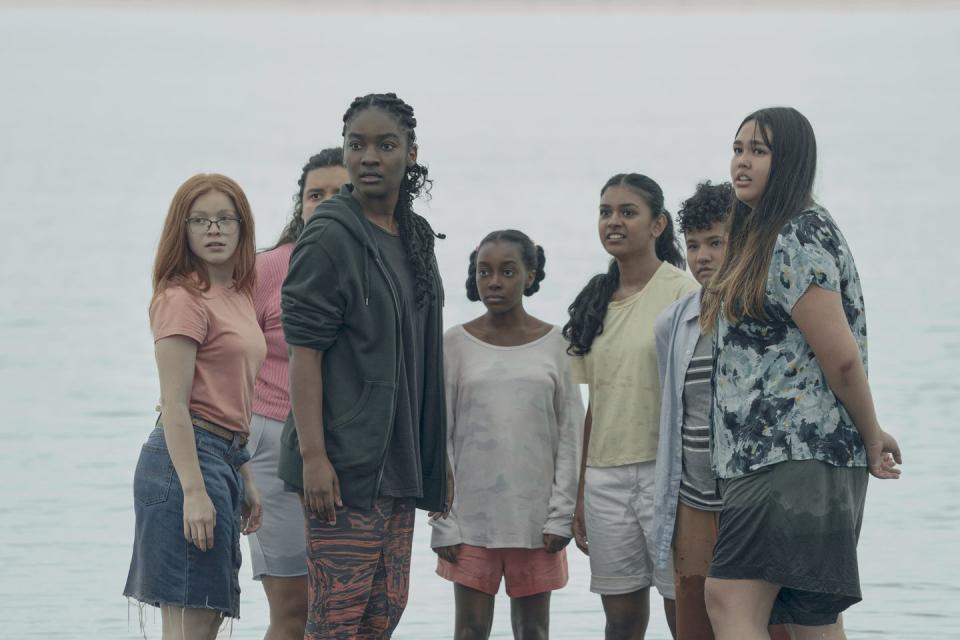People comparing The Power to The Handmaid's Tale are missing the point

- Oops!Something went wrong.Please try again later.
- Oops!Something went wrong.Please try again later.
The Power minor spoilers follow.
You can see why people are making the comparison (and they are, in nearly every review): Prime Video's The Power and Hulu's The Handmaid's Tale are both powerful feminist fables about the abuses women face at men's hands, in worlds recognisably close to our own.
Moreover, Naomi Alderman, author of source novel The Power, was famously mentored through its creation by Margaret Atwood, who wrote The Handmaid's Tale. The stories share raw materials, most notably righteous female rage and a keen eye for misogyny.
But where The Handmaid's Tale restricts its baroque vision of oppression and violence to incidents that have actually happened in one place or another over the course of human history, The Power has an even more fantastical premise, in which young women around the world simultaneously evolve the ability to generate – and direct – electricity from their bodies, giving them real, tangible power over men.

The Handmaid's Tale is a story of oppression and resistance, concerned with witnessing misogyny, documenting it and telling a story of women struggling to overcome it. The Power, though, is more ambitious. Which is not to compare the shows' quality – because what would be the purpose of that, except to pit women against women, yet again?
It begins as a story of literal empowerment, with teenage girls like abused orphan Allie and Roxy, the undervalued, overlooked gangster's daughter, quickly realising the personal, revolutionary potential of their new power. It nails the microaggressions – the calm-down-dears and give-us-a-smiles that litter women's daily experience – and it offers a glimpse of an alternative where women have the upper hand.
Then the show changes into something else. Because where The Handmaid's Tale is concerned specifically with misogyny, The Power only begins with it. That might seem surprising – we're not blind, the show is obviously concerned with misogyny – but its real subject, as the title suggests, is power. And what Naomi Alderman and her all-female writing and directing team are telling us is that power doesn't care who is using it.

The Power says the abuse of power isn't unique to one person or gender (#NotAllWomen) and besides, you can't really abuse power because you're never in control of it anyway. Power, like The One Ring, is always really using you.
Those believing that a world dominated by women would be kinder, more cooperative, more empathetic, might be disappointed in Alderman's vision of the new regime.
We won't get into spoilers – and season one only deals with the first part of the book anyway – but suffice it to say that there's a strong 'meet the new boss' vibe in the air, and future seasons, should they materialise, are likely to address that even more.

Allie, pointedly renaming herself Eve, is led by a voice in her head to a status she never would have dreamed of – and whose is that voice? She sounded at first like Allie's subconscious, perhaps, or some personification of ancient female wisdom. But that's lazy thinking on our part based on a racist cliché.
Allie's inner voice isn't always wise, and isn't necessarily helpful. It has its own agenda, which is why we'd suggest the voice is actually not a part of her, but of her power.
Power wants to be used. Alderman herself makes a startlingly clear point at the beginning of the novel: "The shape of power is always the same". Power, she says and we paraphrase, takes the form of a tree, or of lightning, or a river from its sources to the sea: from tiny tendrils to branches to the main channel, the small to the big, the weak to the strong. It always rises to meet itself, to gather together and to centralise. It doesn't care what your sex, race, class or even your species is, the same pattern always emerges if left unchecked.
Which takes the subject beyond gender politics and prompts universal questions of the show's characters and viewers alike. Namely: what power do I have? And what am I going to do with it?
The Power episodes one to three are on Prime Video with new episodes released weekly.
You Might Also Like
